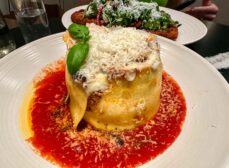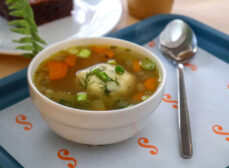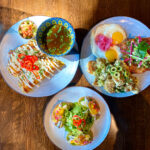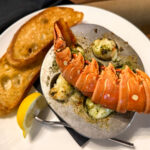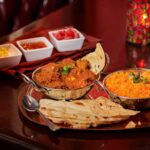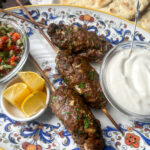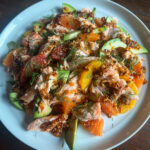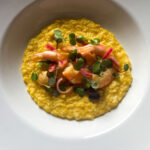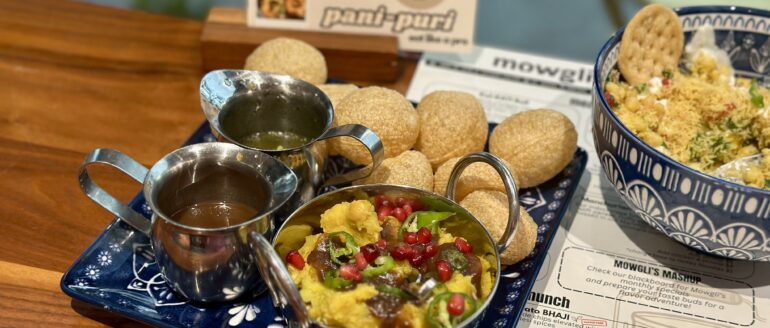
“What’s India like?”
It’s a question I’ve been asked countless times. Whether it’s coming from a genuine place of curiosity or from someone who just wants confirmation of the stereotypes in their head, it’s a question I love answering. I’m 100% Indian, through and through, but I’ve called a lot of places home over my 22 years. Accepting and taking pride in my Indian-ness wasn’t easy, and this question is precisely the reason why.
India recognizes 22 official languages, of which there are hundreds of regional dialects. Its 28 states and 8 union territories each have entirely unique beliefs, festivals and cuisines. The influence of British colonization, Mughal rule and Portuguese (in Goa) and French (in Pondicherry) presence has spawned countless mini-cultures and communities. The complexity of my country is so difficult to put into words. How do I explain that obscene wealth and debilitating poverty coexist in the same street, that I can’t understand my neighbor state’s language at all, that our culture goes back centuries and is at the root of many of your everyday practices (did you think of yoga?).
On that note, when non-Indians say they like Indian food, it’s usually referring to a mix of North Indian (mostly Punjabi) food. And trust me, I’m not snobby about naan and butter chicken. They’re famous because, well, they’re incredibly delicious. But I can’t say it doesn’t pain to me to see this country’s hundreds of local cuisines relegated to the word “curry” time and time again.
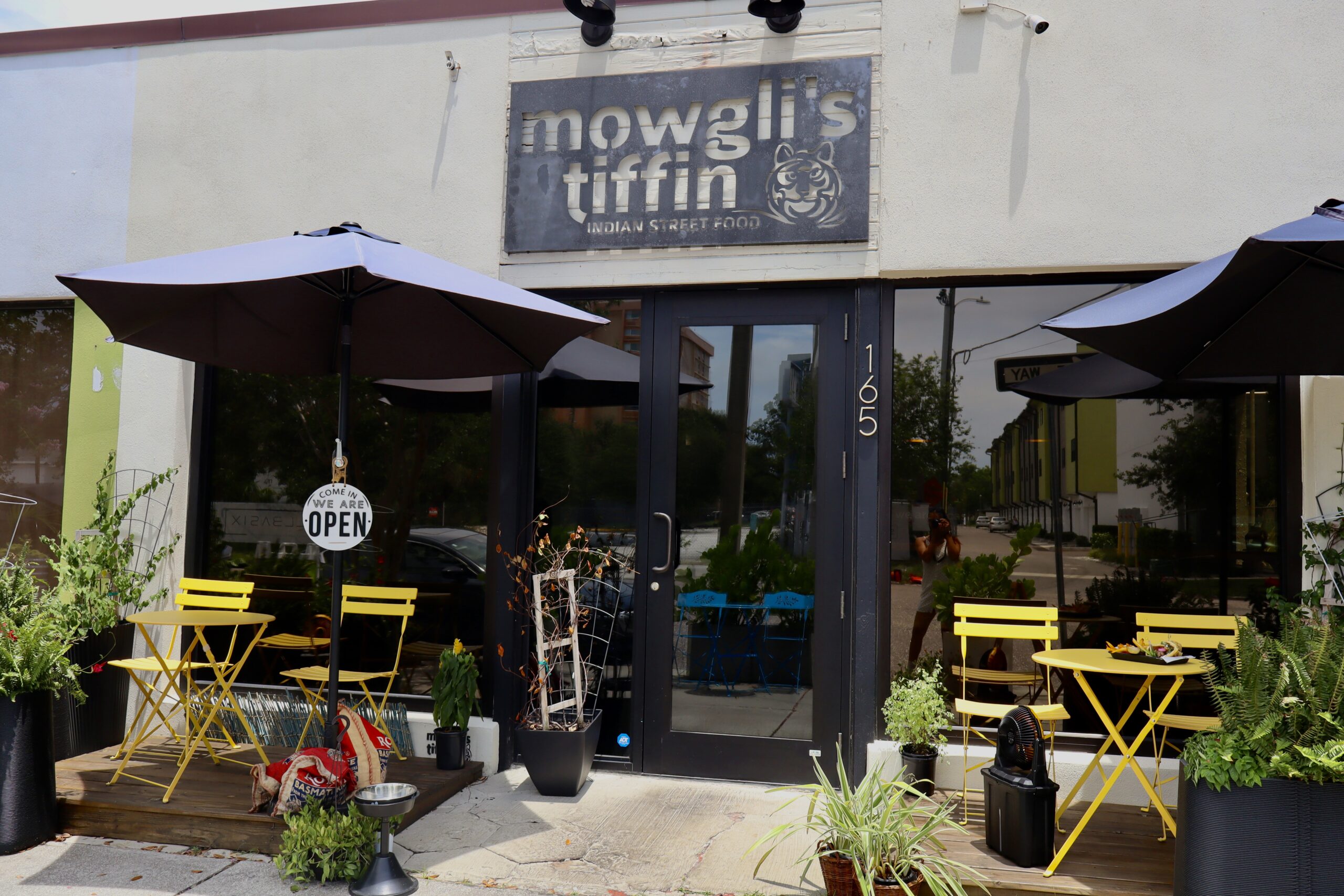
That’s why Mowgli’s Tiffin is a sight for sore eyes – not just in St. Petersburg, but in every big city’s Indian food scene. Owner, Amita Mukherjee, champions street food and regional bites in her downtown St. Pete restaurant, specifically Bengali eats. “Bengal” refers to the geographical region in the eastern part of the Indian subcontinent, now divided between Bangladesh and the Indian state of West Bengal.
Although Amita was born and raised in the U.S., she told me that her parents moved here from Lucknow and Kolkata back in the day and that they still visit India often. We had a great chat about some of the nuances of our complicated country. At Mowgli’s Tiffin, you can expect to see a new side of Indian food; one that I think is the most authentic.
Because if there’s something my people love to do – it’s eat. In nice restaurants, yes, but mostly in our grandmother’s kitchens, with relatives you don’t know, but somehow they have stories of holding you when you were a baby, and at the questionable carts on the side of the street where hard-working middle class citizens chef up some of the world’s tastiest food in their sleep.
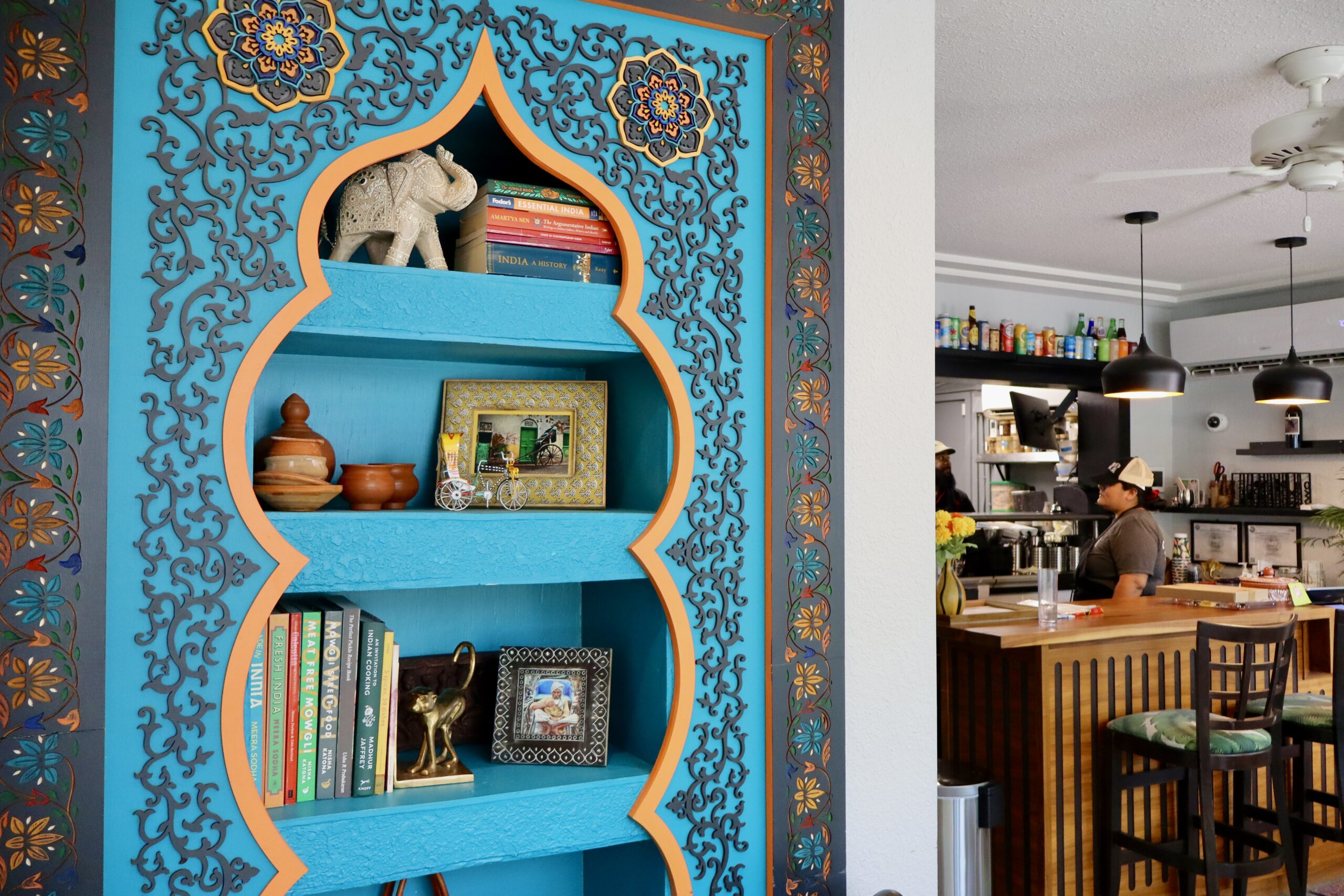
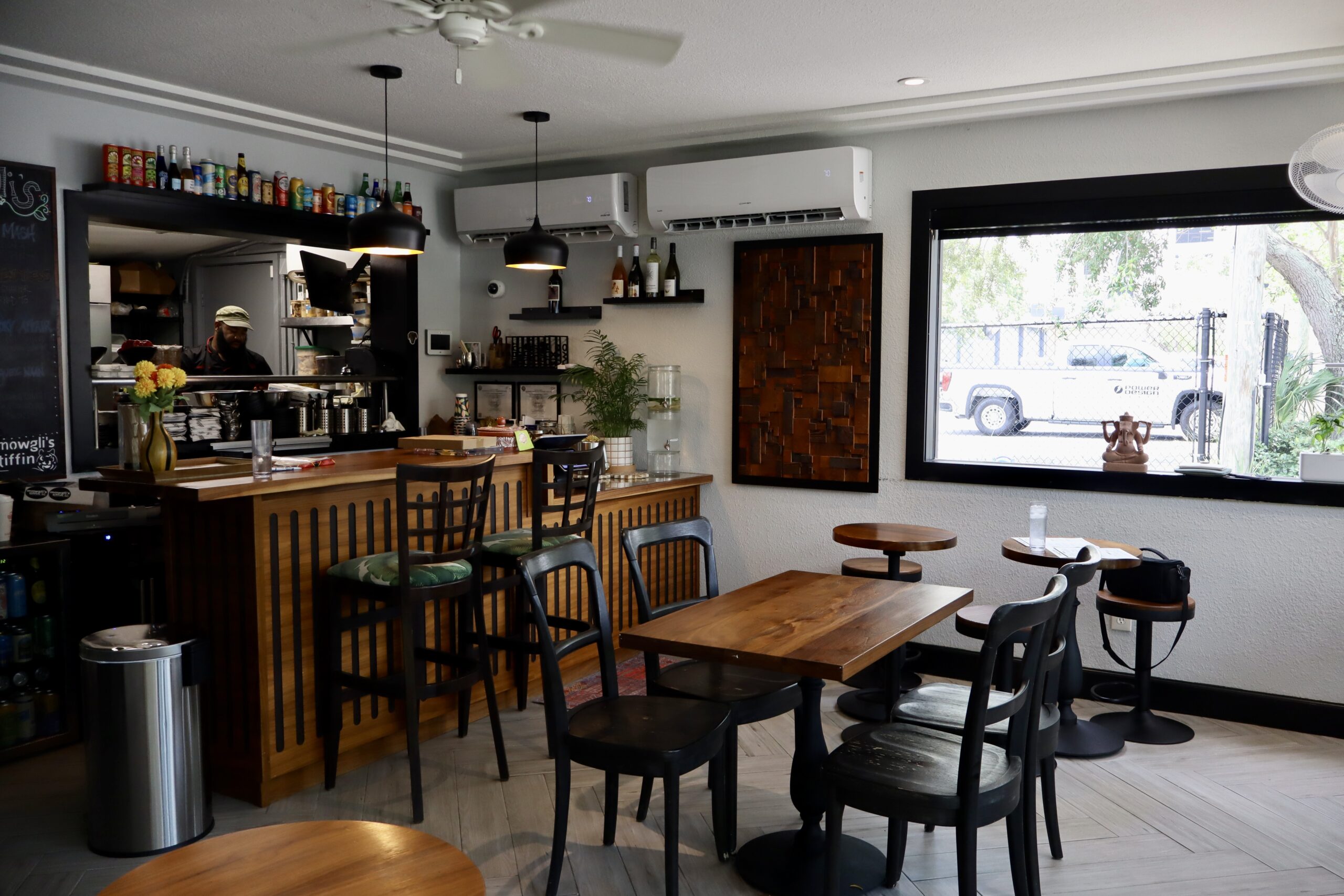
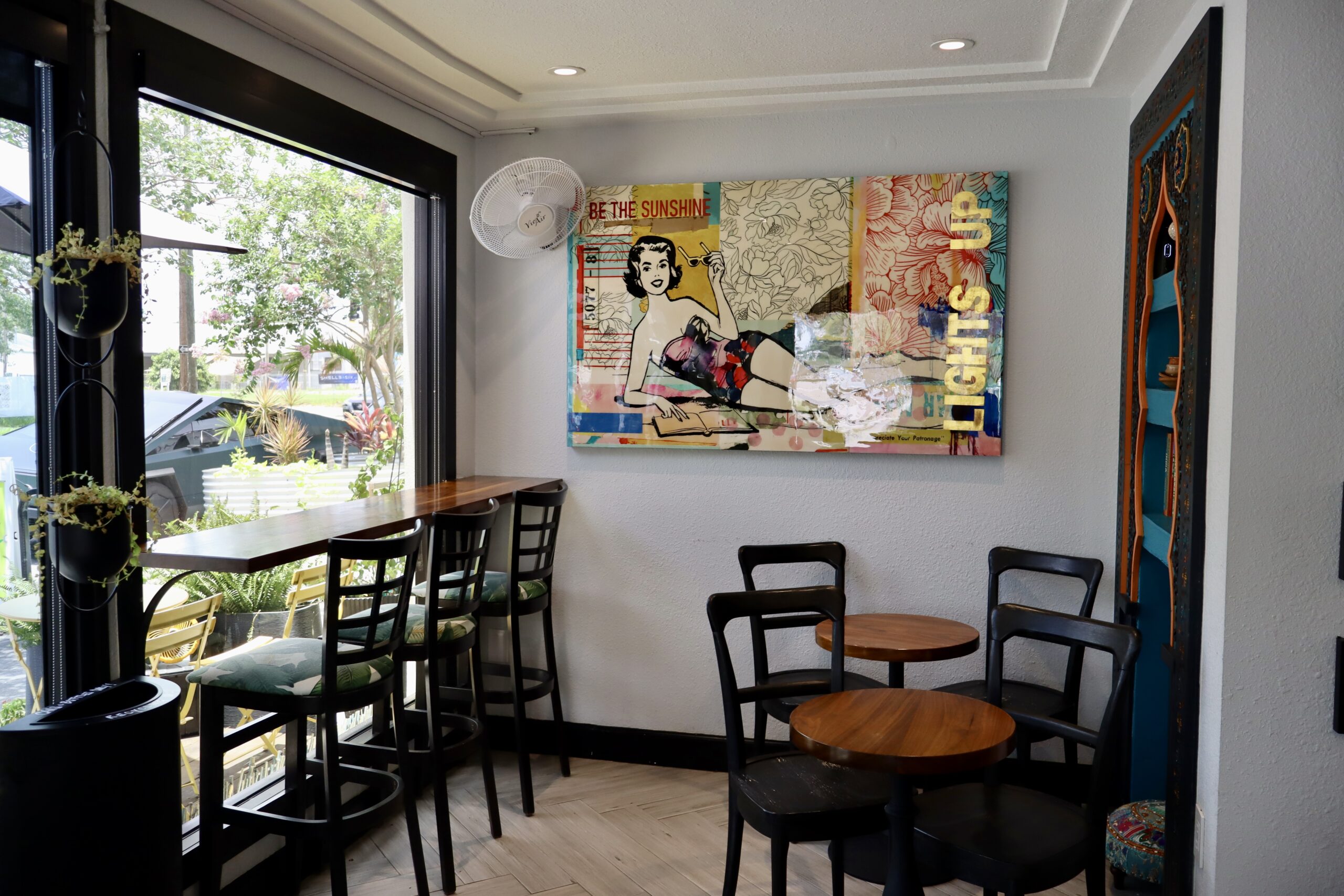
My favorite street-food spots in my hometown, Pune, have been the location of my 12-year-old hangouts, my childhood friends and I high on the rush of feeling “grown up” and being somewhere without our parents, and that same group meeting once a year when everyone’s back from college and reminiscing about how much we’ve changed over the same 50-rupee pani puris. Those stalls are where my mom and I go when we’re bored, where my dad and I stop to refuel after the gym, and where I always turn to for the comfort of home.
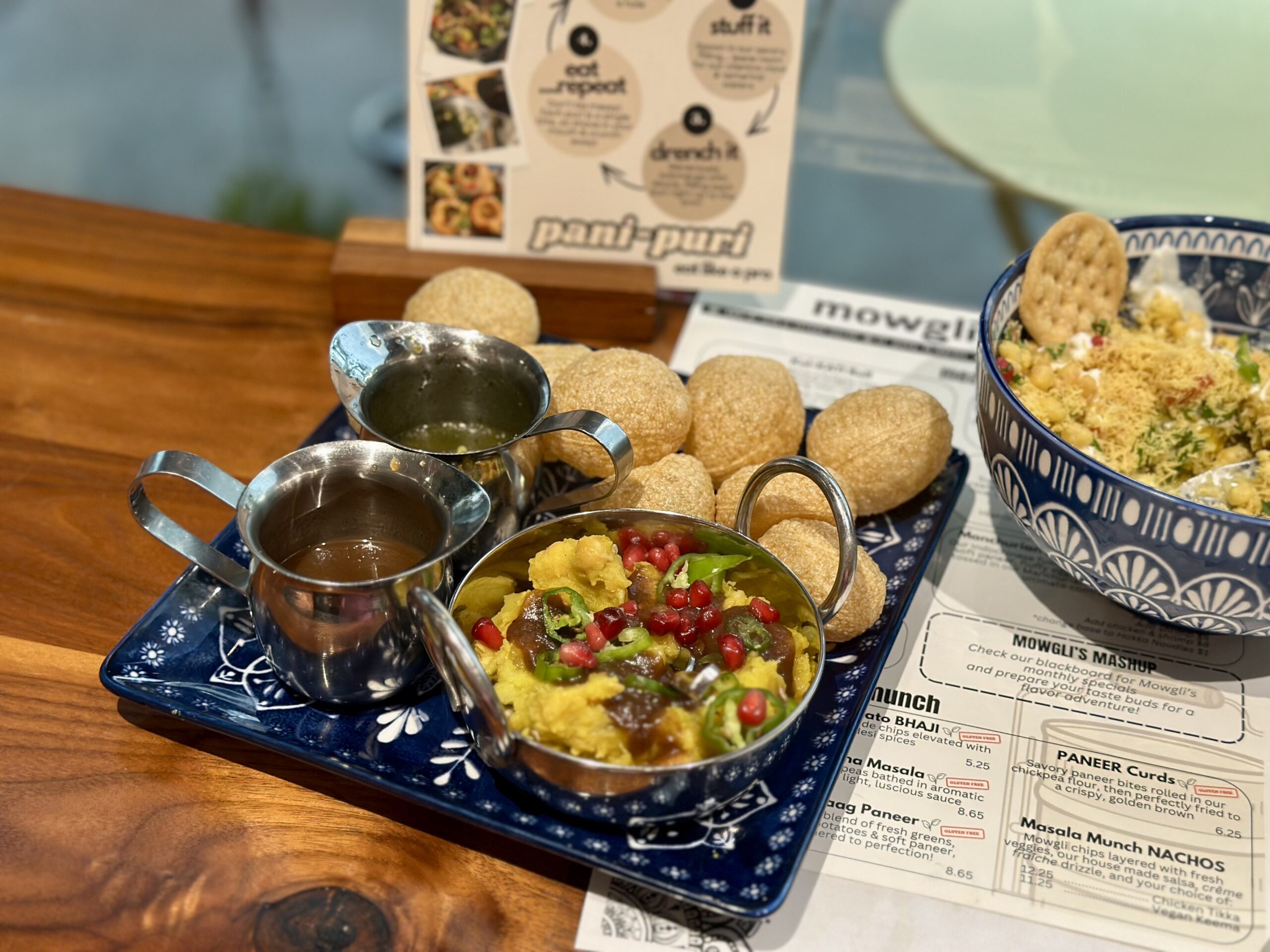
So it’s no surprise I was most excited about the Pani Puri and Papri Chaat. “Pani Puri” literally means “water” and “puri,” which is a type of deep-fried bread. The tiny, crispy versions shown here are the absolute pinnacle of casual Indian food – delightful crisp pockets of air that you make a hole in with your thumb, fill with the potato filling, and dunk in the sweet and spicy “water.” I loved Mowgli’s version of this dish – the spicy water was very mild and heavy on the mint and coriander flavor, and the sweet one tasted of tamarind, just like it should. The potato filling (or “masala”) could have done with cumin powder and Kashmiri red chili powder (known for its non-spicy, smokey taste) in my opinion, but was enjoyable nonetheless.
During this first visit, I went with an American and a Puerto Rican friend, so you can say we had a good variety of spice tolerances and flavor experiences. The group came to a consensus that the puris were thin and broke apart perfectly in the mouth, leaving behind that classic explosion of deliciousness, and the spice was totally fine for them.
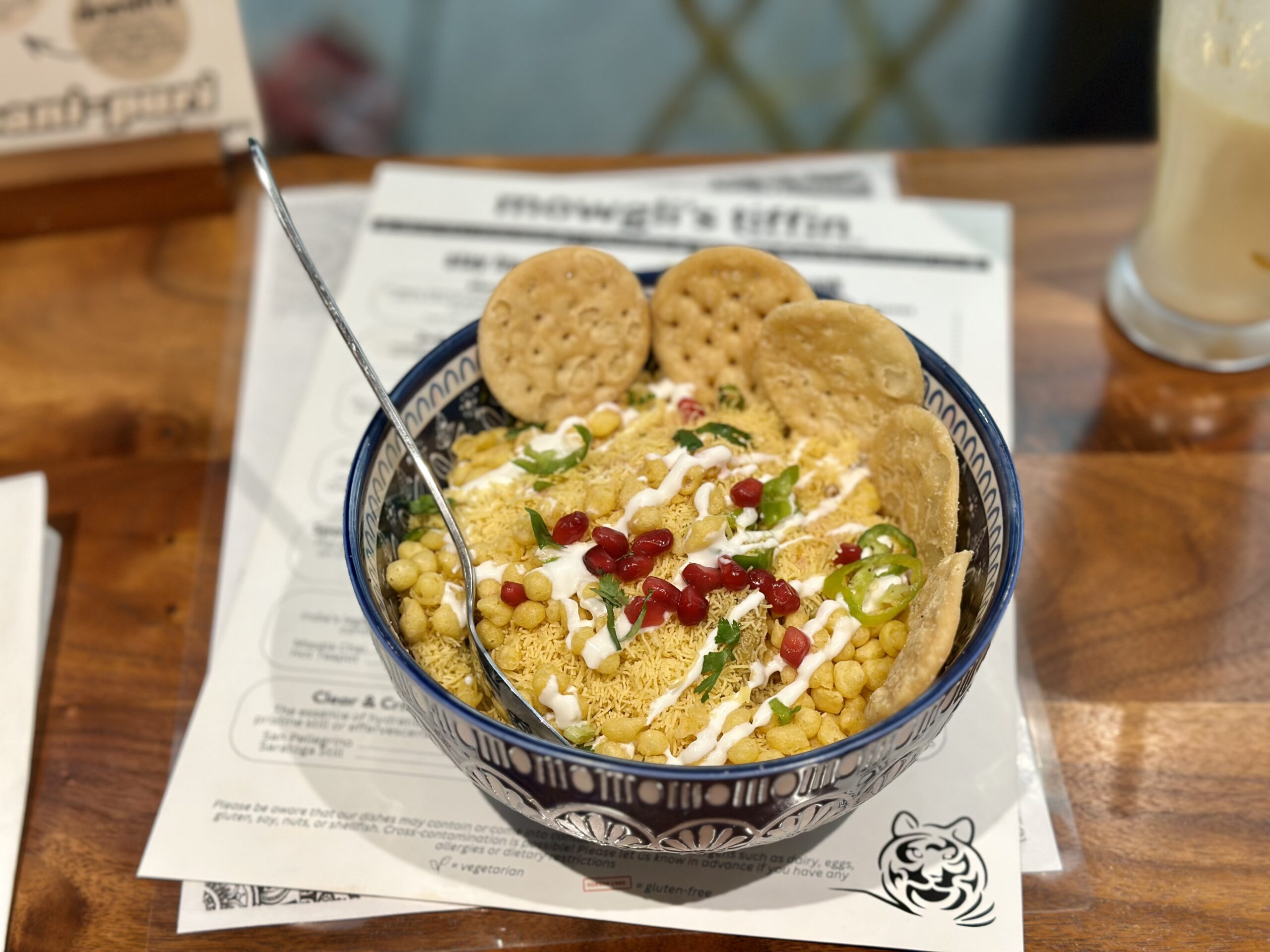
Next, the Papri Chaat. “Chaat” is a catch-all term for a kind of catch-all dish, to be honest. It’s an umbrella term referring to a variety of snacks based on combining crispy “papri” (fried dough wafers) with spicy and sweet chutneys, yoghurt, sometimes things like chickpeas and a bunch of other assorted toppings. Mowgli’s version had all of the above and the same potato filling from the pani puri (the layers are hidden below the surface). You can see the “papris” on the side – I definitely could have done with at least double the amount shown above to scoop up all the filling. This was a very solid chaat, but I was missing the presence of a bold green chutney with a bright coriander flavor. My friends really enjoyed the varying textures and tastes in this dish.
If you were to come to Mowgli’s for two things, it has to be those two. Bring some friends and dig into to these sharable street-side treats.
Now, were you perhaps wondering if you’d be able to score a Mango Lassi or some Butter Chicken anyway? I’ve got some good news for you.
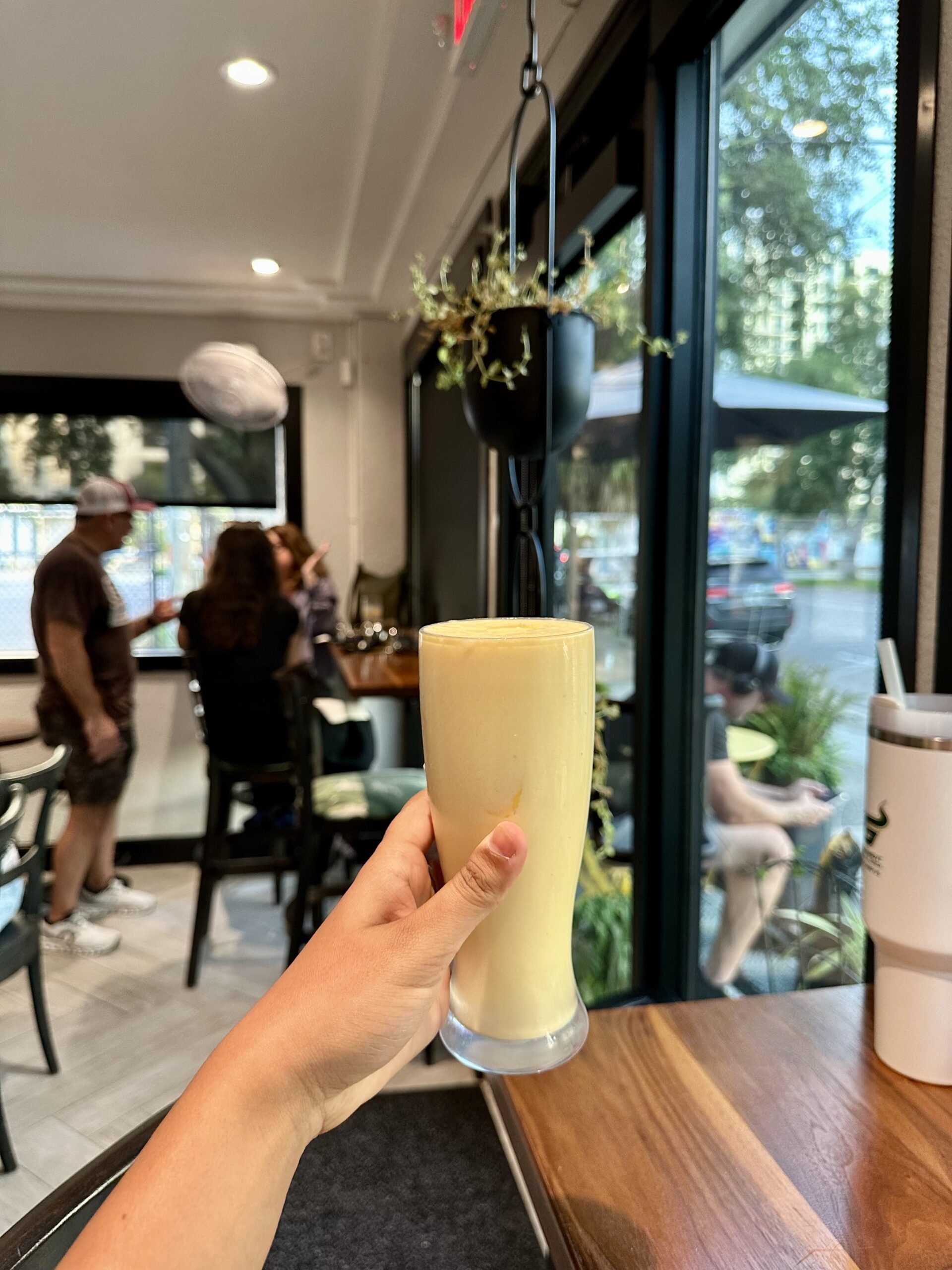
This Mango Lassi was a point of discussion among me and my friends. Immediately, it was different from the usual, bright orange mango-forward lassis we’ve had at other Indian places nearby. The bright orange color isn’t always a red flag though. In fact, it usually means that the drink features Alphonso mango, the absolute prize jewel of India’s fruit crop and the world’s best mango in my opinion. It’s naturally a vibrant orange and is insanely sweet.
But Alphonso mangoes are only grown in the Indian summer and are incredibly pricy. This lassi was more yogurt-forward and more tangy-sweet in mango flavor. When I asked Amita which mangoes she used for the lassi, she said she prefers tangier ones – something my Bengali mom has said to me countless times. Amita said they don’t have a constant mango for the lassi, and one of the chefs said they’re currently using a Colombian variety, though I’m not sure which one. Amita said they tend to use whatever they can get their hands on.
I don’t know if this would be feasible with import costs, but I would love it if Mowgli’s locked down one of the less common Indian mango varieties for their lassi. There are dozens beyond the Alphonso, and my friend Gigi said she really liked the light sweetness and mango flavor of this one. My other friend, Lilly, missed the deeper mango flavor but pointed out the incredibly aerated, fluffy mouth feel of this one. It was almost pillowy.
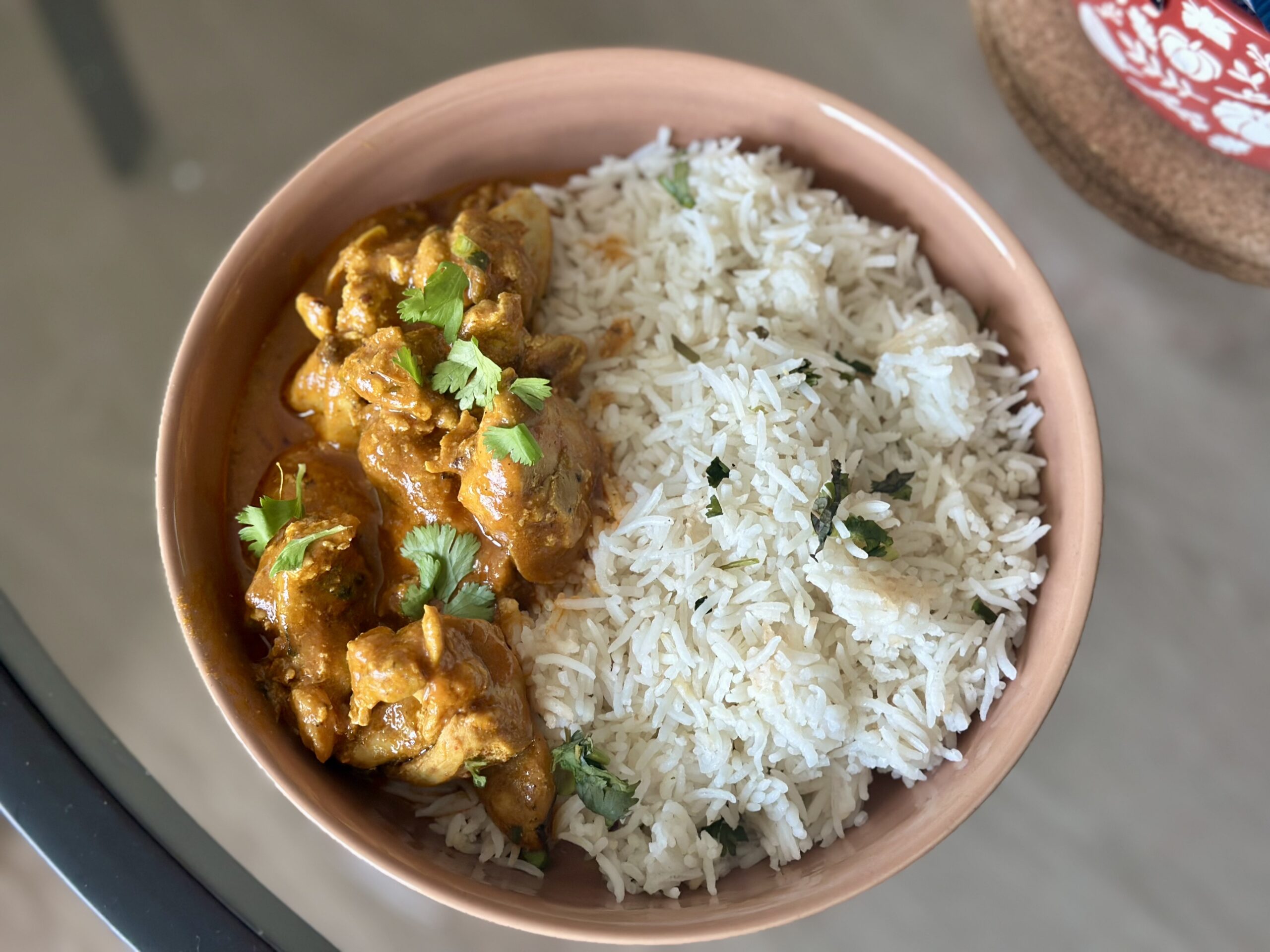
Even though I ate it at home the next day, this is some of the best butter chicken in town. Why? Because the chicken pieces have been thoroughly marinated beforehand and the gravy is complex in flavor and not the tomato-sauce-vibe I get from every single other place. I wish there was a bigger chicken portion compared to the rice, but all in all, this is a solid butter chicken dish.
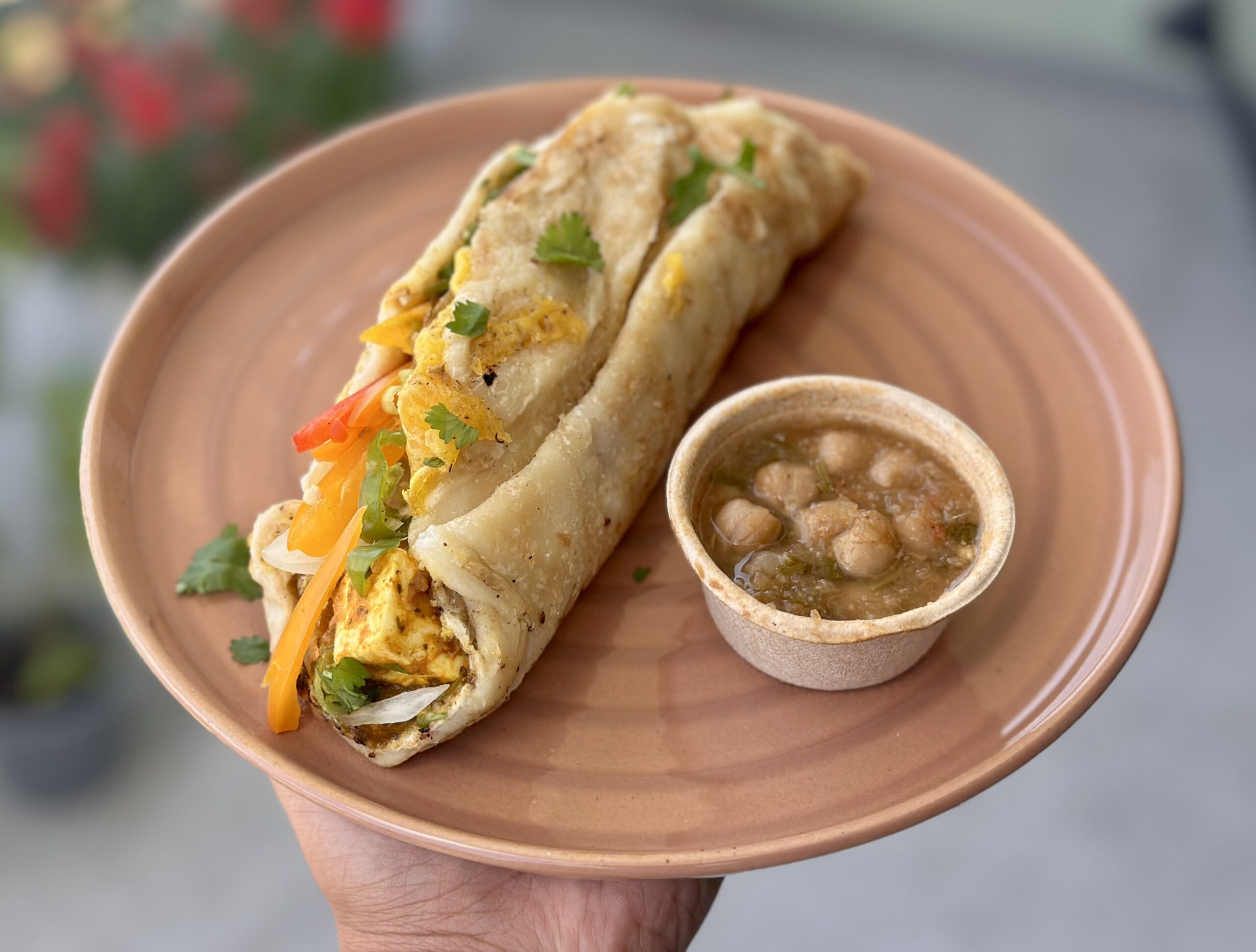
Kathi rolls, how I miss you. Especially popular in Kolkata streets but enjoyed all over India, a Kathi roll is a flaky paratha (a type of flatbread) lined with a fried egg, stuffed with kebab/skewered meat, chutney and veggies. It’s the ultimate comfort meal. I ordered the paneer version at the “medium” spice level (everything else was ordered ‘”mild) – but this set my mouth on fire. I genuinely had trouble getting it down, and it felt like I jumped up sixteen spice levels instead of just one.
The portion of grilled paneer inside was very generous, the veggies were crisp and flavorful and it would have made for the best meal yet if it wasn’t absolutely fiery. The side of chana masala (chickpea curry) was bland and watery, and felt like an afterthought. I would go for the side salad.
All in all, I’m certain the Kathi rolls at a “mild” spice level and enjoyed fresh would be a delicious, hearty and unique meal.
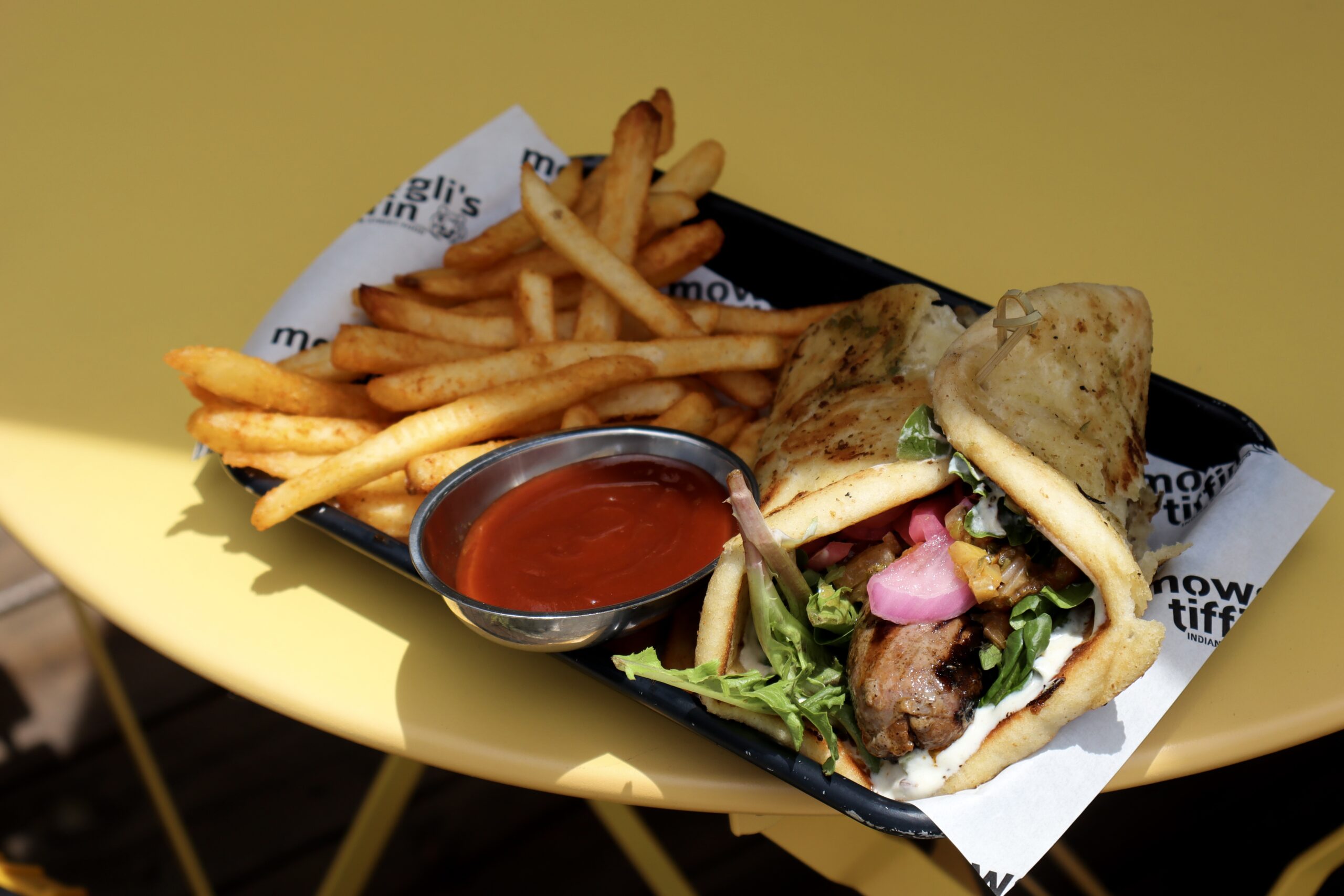
I also visited by myself on a Tuesday for lunch. In contrast to the absolutely packed dining room that my friends and I walked into at 7 p.m. on a Friday night, I had the whole restaurant to myself. This Lamb Merguez Naan Roll is exactly what I wanted it to be – a fluffy, pillowy naan stuffed with a generous lamb sausage, red onions, dressed lettuce, a yoghurt sauce and more veggies. The fries were crispy perfection and coated in a peri-peri type spice. Yum!
This is one of Mowgli’s new rotating specials. Amita told me that she’s very open to changing up the menu until she finds what works best with her audience and her brand, so the menu will be changing quite often. Her warmth and welcoming nature is evident and makes me proud to be Indian – we are known worldwide for our hospitality, and in the way that she treated us and all her customers with patience, care and personalized attention shows that she’s very much one of us.
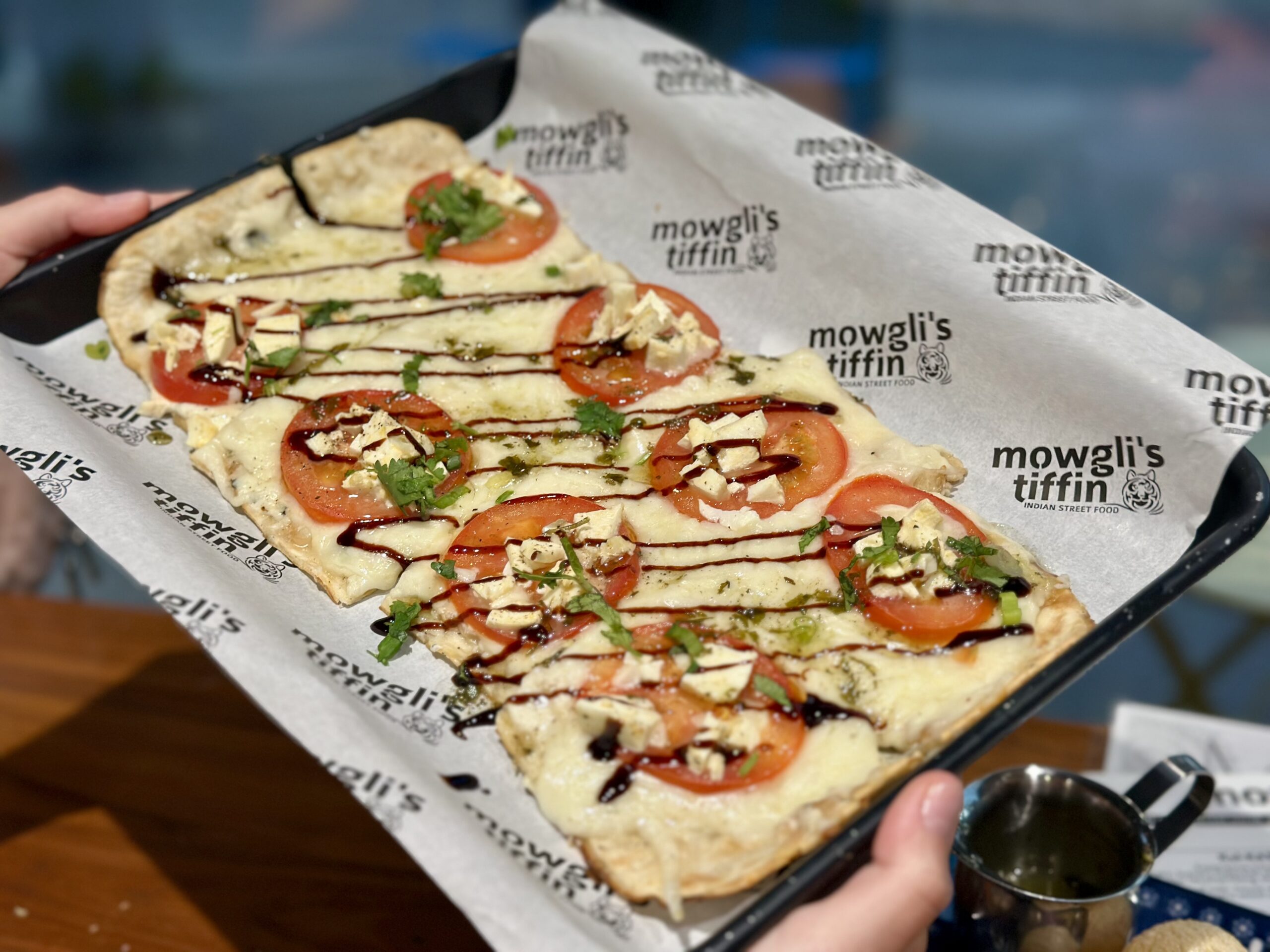
I wanted to try one of the fusion items, but the Margerita Paneer Naan Flatbread was disappointing. I wanted pillowy naan, but this crispy, flat version might as well have been any other bread. While the tomato, herb, mozzarella and balsamic combo wasn’t bad, it’s available at any other place in town. I totally get having certain things on the menu to appeal to a wider audience, but I think this fell flat in execution. There was also very little paneer.
To make this more Indian fusion, I would keep a fluffy naan as the base, maybe slather on some tandoori mayo or green chutney, and add marinated paneer like they used in their Kathi roll.
On that note, I really think this 6-month-old restaurant is a very welcome addition to a previously uninspired Indian food scene. As it continues to grow, my hope is that Amita doesn’t get swept up in overdoing the “fusion” side of things, and instead doubles down on carving out her niche of authentic East Indian and street food. I absolutely love a good fusion bite, but I also think we have plenty of mixed-cuisine bites in town. Why not own this side of Indian food that no one else is doing yet?
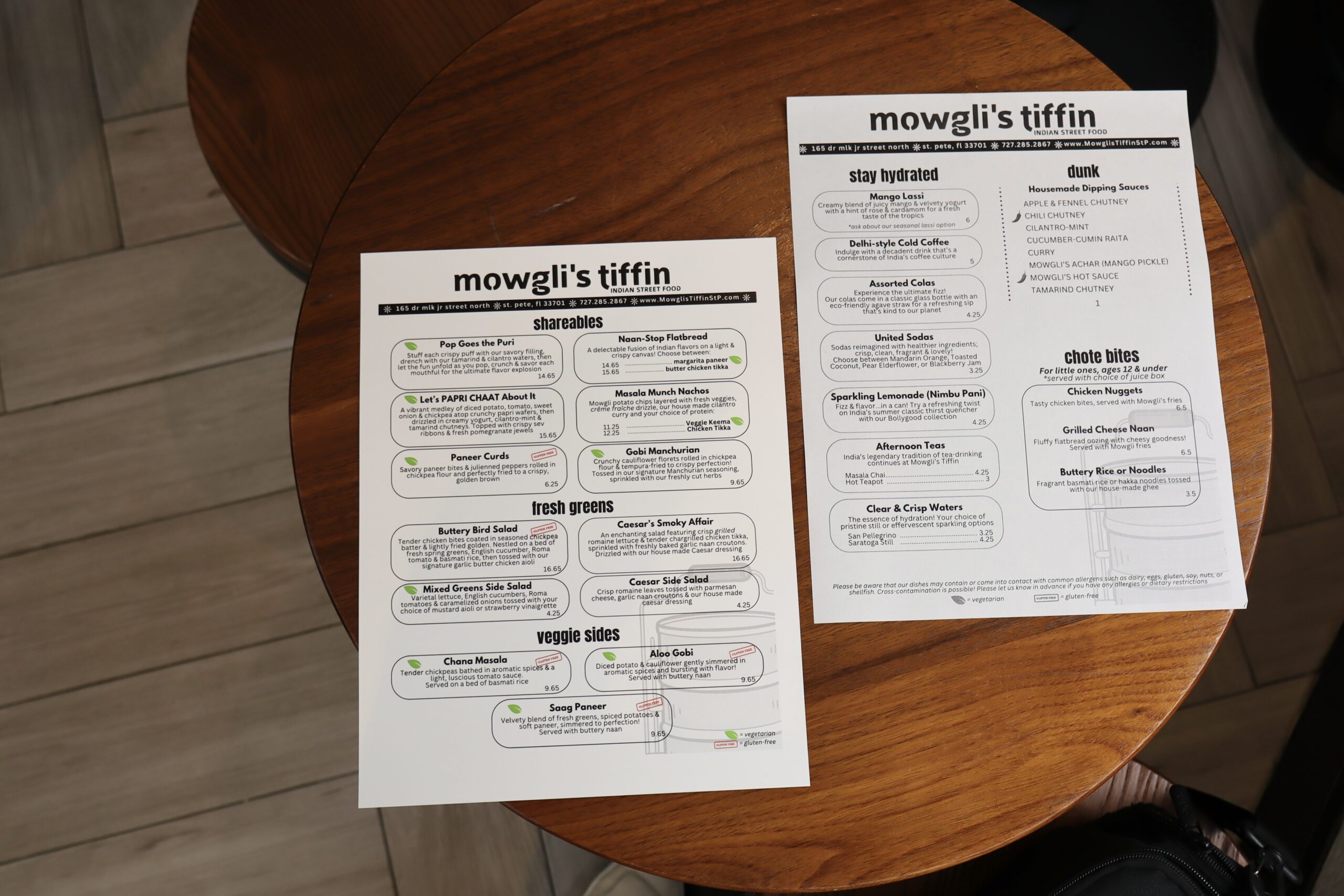
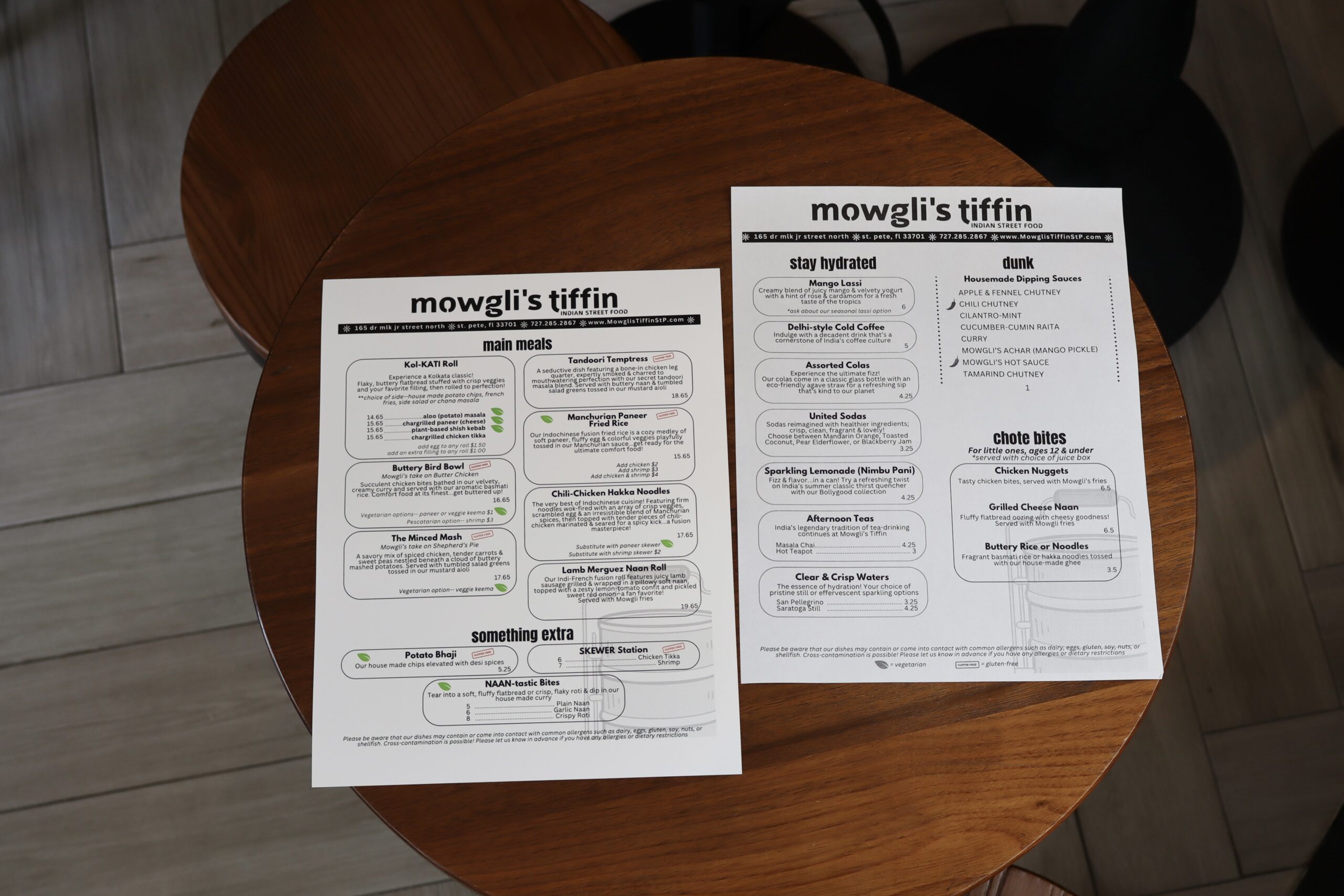
Casual spot for Indian classics and unique street food.
PLEASE NOTE: Reviews reflect a certain moment in time. Some restaurants stay extremely consistent over many years, and some change for the better or worse. Some things that may change are: chefs, recipes, food suppliers, ingredients, philosophies, ownership, etc. We always hope that you have the same good, or great experience we had.





